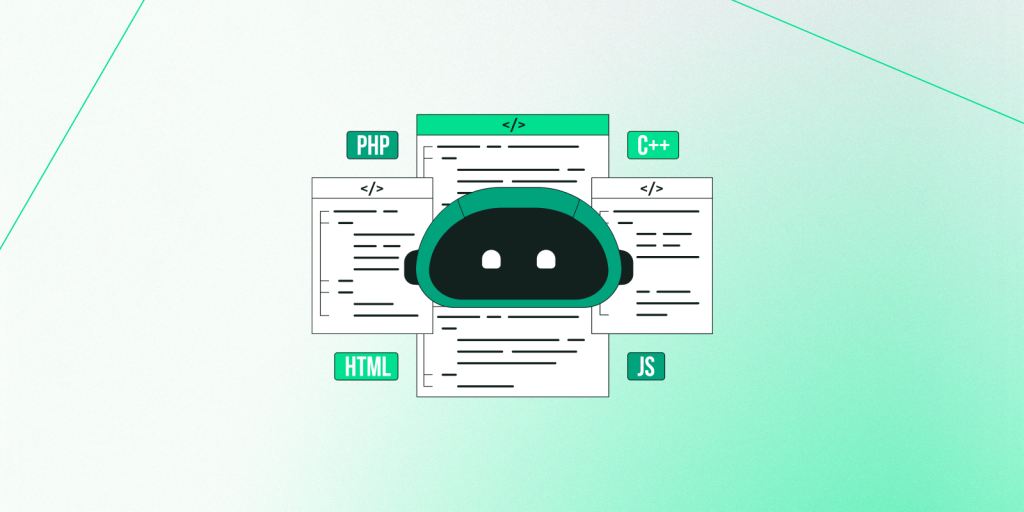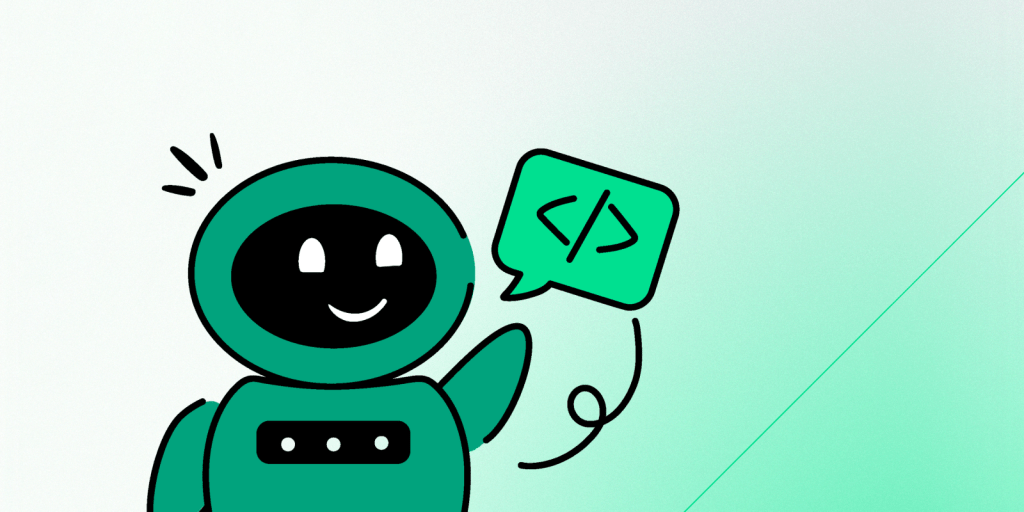AI coding assistants have become invaluable companions in the modern development environment, streamlining workflows and reducing manual tasks. A McKinsey & Company report from 2023 estimates that AI-powered coding tools can reduce the time developers spend writing new code by 50% while optimizing existing code can be done in about two-thirds of the usual time. These intelligent tools offer more than just basic code completion; they can help with bug detection, code optimization, and even learning new programming languages. This post will explore some of the best AI coding assistants available today, examining their features, strengths, and how they can transform your development workflow.

Key Features to Look for in AI Coding Assistants
When selecting the right AI coding assistant, understanding the features that can significantly improve your coding experience is essential. Below are some of the most important features to consider:
1. Code Autocompletion
AI-powered code autocompletion is one of the most sought-after features in coding assistants. It predicts the next lines of code based on the context, helping you write faster and with fewer errors. This feature is especially useful for reducing repetitive tasks and speeding up the development process by filling in syntax, functions, and variable names as you type.
2. Bug Detection and Fixing
Advanced AI coding assistants also assist in detecting potential errors as you code. Many tools offer real-time feedback, highlighting bugs, logic errors, and potential vulnerabilities. Some assistants can even suggest fixes, allowing you to correct issues on the fly without manually debugging everything.
3. Language Support
A good AI coding assistant should support multiple programming languages. This flexibility is crucial for developers working in different environments or learning new languages. Comprehensive language support ensures the AI tool can adapt to your specific needs, whether you’re coding in Python, JavaScript, Java, or C++.
4. Code Refactoring
Code refactoring is vital for maintaining clean and efficient code. AI coding assistants can automatically suggest improvements to your code’s structure, making it easier to read and maintain. Refactoring suggestions often include simplifying functions, removing redundant code, and optimizing performance.
5. Collaboration Tools
Many AI coding assistants integrate seamlessly with platforms like GitHub, allowing for better collaboration in team environments. These tools help manage version control, merge conflicts, and code reviews, making working on large projects with multiple contributors easier. Integration with cloud services and other development environments is also a valuable asset.
6. Learning Support
AI coding assistants can be incredibly useful for developers looking to learn new languages or improve their skills. Some tools provide built-in tutorials, explain code suggestions, or offer detailed documentation, making them a great companion for beginners and seasoned developers who want to explore unfamiliar territories.
7. Customizable AI Models
Some AI assistants allow customization to adapt to your coding style or project requirements. This feature lets developers fine-tune how the AI interacts with their codebase, ensuring suggestions align with specific development practices, industry standards, or team preferences.

Top AI Coding Assistant Tools for Developers
1. GitHub Copilot
GitHub Copilot is one of the most popular AI coding assistants, powered by OpenAI’s Codex model. Integrated seamlessly into popular IDEs like Visual Studio Code, it provides real-time code suggestions as you type. Copilot’s strength lies in its ability to autocomplete code, generate entire functions, and suggest code blocks based on natural language comments. It supports multiple programming languages, including Python, JavaScript, TypeScript, and Ruby, making it highly versatile.
– Best For: Developers looking for an intuitive assistant that integrates tightly with GitHub workflows.
– Key Features: Autocompletion, code generation, multi-language support, integration with GitHub.
Pricing:
Individual Plan: $10 per month or $100 per year (with a 30-day free trial).
Business Plan: $19 per user per month, including features like enhanced security and a public code filter.
Enterprise Plan: $39 per user per month, available for GitHub Enterprise Cloud subscribers, with features like pull request summaries and fine-tuned models for custom use.
2. Codeium
Codeium is a free AI-powered code generation tool that supports many programming languages. It integrates with popular IDEs like Visual Studio Code, JetBrains, and Jupyter, making it versatile for developers across different platforms. Codeium offers fast autocompletion, code suggestions, and refactoring help without a subscription.
– Best For: Developers seeking a free, powerful AI assistant with multi-language support across major IDEs.
– Key Features: Free-to-use, multi-language support, fast autocompletion, integration with various IDEs.
Pricing:
Individual Plan: Free for everyone.
Teams Plan: $15 per seat per month (up to 100 seats) with features like admin usage dashboard, seat management, and GPT-4 access.
Enterprise Plan: Custom pricing, offering advanced features like on-prem deployments, fine-tuning, and priority support.
3. Tabnine
Tabnine is an AI-powered autocompletion tool that supports a wide range of programming languages. Unlike other AI assistants, Tabnine focuses on providing fast and accurate code completions using both local and cloud-based models. It offers flexibility in terms of privacy, allowing developers to run it entirely on their local machines to keep code private or use cloud options for enhanced performance.
– Best For: Teams or individuals who want customizable, high-performance code suggestions with privacy control.
– Key Features: Privacy-first options, multi-language support, cloud and local models, customizable AI.
Pricing:
Basic Plan: Free, includes basic AI code completions, AI-powered chat (may be rate-limited), and support for all major IDEs.
Pro Plan: $12 per user per month (free for the first 90 days), includes cloud-based autocompletion, AI chat agents in IDEs, security vulnerability filtering, and basic admin tools.
Enterprise Plan: $39 per user per month with a 1-year commitment, offers private SaaS or self-hosted deployment, personalized AI agents for your entire codebase, advanced admin tools, and priority support.
4. CodeT5
CodeT5 is an open-source AI-powered tool designed for code generation, translation, and repair. It helps convert natural language instructions into executable code, making it an excellent tool for developers looking to automate coding processes. CodeT5 can also identify bugs and generate code to fix them, making it a versatile choice for teams working on complex projects.
– Best For: Developers looking for AI-powered code generation and translation across different languages.
– Key Features: Natural language-to-code generation, bug fixing, open-source, multi-language support.
Pricing:
Open-source: CodeT5 is free and available as an open-source tool on GitHub with no paid version.
5. Mutable.ai
Mutable.ai provides personalized coding assistance with an emphasis on performance optimization. It offers real-time code suggestions, refactoring, and automation that adapt to your project’s needs. Developers can customize the AI to their workflow and get real-time feedback on improving performance across their codebase.
– Best For: Developers looking for personalized AI code suggestions and performance optimizations.
– Key Features: Customizable suggestions, real-time feedback, refactoring, performance optimization.
Pricing:
Basic Plan: Free for open-source projects, starts at $2 for additional features. Includes AI-generated code documentation, monthly updates, code architecture diagrams, and CI/CD integration for pull requests.
Premium Plan: $15 per month, includes all Basic Plan features, higher quality AI models, better decomposition, more detailed answers, and advanced code generation.
Enterprise Plan: Custom pricing, includes all Premium Plan features, priority support, organization mode, fine-tuning on your codebase, and on-premises functionality.
6. AskCodi
AskCodi is a versatile AI-powered coding assistant that helps developers with code generation, documentation, and even writing test cases. It supports various programming languages and is designed to streamline coding tasks with real-time suggestions.
– Best For: Developers looking for comprehensive assistance in coding, documentation, and test generation across various languages.
– Key Features: Code suggestions, documentation generation, multi-language support, integration with popular IDEs.
Pricing:
Free Plan: $0/month, includes 50 credits for the base model.
Premium Plan: $8.33/month (billed annually at $99.99/year), includes unlimited base model, limited advanced models, 500 credits for advanced models, 2 data sources, and priority support.
Ultimate Plan: $24.99/month (or $299.99/year), includes unlimited base model and advanced models, 3000 advanced model credits, 5 data sources, and priority support.
7. Amazon CodeWhisperer
Amazon CodeWhisperer is an AI-powered coding assistant built to help developers using AWS services. It provides real-time code suggestions based on the AWS stack and supports general-purpose programming. CodeWhisperer integrates with IDEs like JetBrains and Visual Studio Code, making it easy for developers working with AWS to get context-aware code completions and recommendations for AWS APIs.
– Best For: Developers who frequently work with AWS services and require code suggestions tailored for AWS SDKs and APIs.
– Key Features: AWS-focused code generation, real-time code suggestions, multi-language support, integration with major IDEs.
Pricing:
Individual Tier: Free for individual developers. This plan includes unlimited code suggestions, reference tracking, and up to 50 security scans per month, making it ideal for individual users who want to take advantage of AI-powered coding without any financial commitment.
Professional Tier: $19 per user per month. This plan provides additional features such as administrative capabilities for managing users and policies, along with an increase to 500 security scans per month. It is designed for teams and organizations that require more robust security and management tools.
Top AI Coding Assistant Tools for WordPress Developers
WordPress development involves a mix of PHP, JavaScript, HTML, and CSS. While many general coding assistants help with these languages, some tools cater more specifically to WordPress developers, focusing on WordPress functions, hooks, and best practices.
1. WPCodeBox
WPCodeBox is an AI-powered code snippet manager specifically designed for WordPress developers. It allows developers to store, manage, and run snippets directly within the WordPress dashboard. The tool helps automate everyday tasks like adding custom functions or CSS without needing a child theme, streamlining the process of modifying WordPress sites without touching the core files.
– Best For: WordPress developers looking for a simple way to manage code snippets without modifying theme files.
– WordPress-Specific Uses: Custom functions, action hooks, CSS, and PHP snippets that integrate seamlessly with WordPress.
2. CodeWP
CodeWP is an AI-based tool built specifically for WordPress development. It helps generate WordPress code quickly by focusing on snippets commonly used in themes, plugins, WooCommerce, and custom development. CodeWP offers a free and paid version, providing specialized code completions and suggestions tailored to WordPress’s unique structure, including PHP snippets, shortcodes, and custom taxonomies.
– Best For: WordPress developers who want a specialized AI assistant to generate WordPress-specific code.
– WordPress-Specific Uses: PHP snippets, WooCommerce customizations, action/filter hook suggestions, and generating functions for theme customization.
Potential Drawbacks and Challenges
While AI coding assistants offer many benefits, they have limitations. It’s important to understand some of the potential drawbacks and challenges that come with using these tools to ensure they’re integrated effectively into your workflow.
1. Accuracy and Reliability Issues
While powerful, AI coding assistants are not always 100% accurate. They may suggest incorrect or suboptimal code solutions, especially for complex or niche scenarios. Developers must still exercise caution and critically review the AI’s suggestions to avoid introducing bugs or inefficiencies into their codebase.
2. Over-Reliance on AI
One of the risks of using AI coding assistants is over-reliance. If developers depend too heavily on these tools, they might lose touch with fundamental programming skills or fail to deepen their understanding of the code they are writing. AI is a useful supplement, but it should not replace the developer’s responsibility to understand and write efficient, secure, and clean code.
3. Limited Context Understanding
AI coding assistants can only interpret the context within the immediate scope of the code. They lack full awareness of the broader system architecture or the project’s long-term goals. As a result, their suggestions may not always align with the project’s overall design or intended functionality, requiring the developer to step in and make judgment calls.
4. Learning Curve
While AI coding assistants are designed to help, they can sometimes add complexity to the coding process. For beginners, in particular, there may be a learning curve in figuring out how to integrate AI tools effectively into their workflow. Navigating through AI suggestions, customizing the tool, and managing the assistant’s feedback might require time to master.
5. Privacy and Security Concerns
Many AI coding assistants, especially cloud-based ones, collect data from your code to improve their suggestions. This raises potential privacy and security concerns, particularly for businesses dealing with sensitive or proprietary information. It’s crucial to understand the data policies of each tool to ensure compliance with your organization’s privacy standards and regulations.
6. Bias in AI Models
AI coding assistants are trained on large public datasets, which can introduce biases based on common coding practices or popular frameworks. This can sometimes lead to skewed suggestions that may not be relevant to your project. Developers must remain vigilant in assessing whether AI-generated code fits their particular use case rather than mindlessly following the most common patterns.
7. Cost and Licensing
Some AI coding assistants, especially those offering advanced features, can be costly, which might be a barrier for smaller teams or independent developers. Subscription models or enterprise-level pricing can make these tools less accessible for certain groups, requiring careful consideration of the return on investment before committing to a specific AI tool.
Best Practices for Using AI Coding Assistants
– Start with Clear Comments: Use descriptive comments and natural language prompts to guide the AI in generating accurate code.
– Review AI Suggestions: Always review the code generated by the AI for logic errors or security vulnerabilities to ensure it aligns with your standards.
– Use for Repetitive Tasks: Automate routine tasks like code formatting, unit tests, or boilerplate generation to save time.
– Integrate Gradually: Start by using AI assistants for specific tasks like debugging or code completion, and gradually expand usage as they prove reliable.
Keep ahead of the curve — join our community today!
Follow us for more insights on web development, WordPress and the latest in AI-powered tools that enhance coding productivity. Stay updated with tips, tutorials, and industry trends to help you build better, faster, and smarter.

